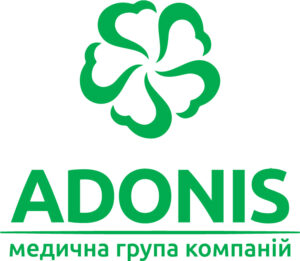
There is an imbalance between the number of physical rehabilitation centers in Ukraine and the number of rehabilitation specialists that is currently insufficient, according to Vadim Kerestey, head of rehabilitation department of Adonis medical clinic network.
“We can observe a noticeable imbalance between the number of physical rehabilitation centers that have opened over the last year and the number of experienced specialists who can provide quality assistance to the injured”, – he told Interfax-Ukraine.
At the same time, according to Kerestei, “the medical system of Ukraine does not currently have sufficient capacity to provide comprehensive rehabilitation services.”
“The heavy load on the entire medical system of Ukraine, the lack of the necessary number of experienced specialists and specialized centers make it impossible to provide harmonious and versatile rehabilitation care wherever it is needed,” he said.
The expert noted that “the state catastrophically lacks physically enough doctors of rehabilitation medicine: physical therapists and occupational therapists.”
“Many, newly opened, rehabilitation centers are critically understaffed with a team of specialized experienced physicians and must create a team from scratch, with specialists who have very little clinical experience, which consequently affects the quality of patient care,” he said.
At the same time, the expert noted that “the state medical system is changing very rapidly and actively adapting.
“This allows us to say that in the near future we will be able to do everything for the quality and comprehensive recovery of patients who suffered as a result of Russia’s military aggression against Ukraine,” he said.
“An option for cooperation between the state and private rehabilitation centers could be the following scenario: since private medical centers already have excellent conditions for comprehensive and effective rehabilitation of victims, the state should guarantee 100% compensation to patients for rehabilitation costs in such medical institutions,” Kerestei believes.
The expert noted that such cooperation may be beneficial for the state due to the specifics of rehabilitation: many state rehabilitation centers cannot provide effective help and there will be a need to undergo repeated courses of treatment several times.
At the same time, according to Kerestei, in private medical centers “after the first cycle, the patient will have significantly better results or even will fully recover and be able to return to normal social life.
Commenting on Adonis’ place in the national rehabilitation system, Kerestay pointed out that the network of medical centers has been working with wounded warriors for more than 15 months.
He reported that Adonis has had “a vivid experience working with charitable foundations and private donors”.
Kerestey stressed that “rehabilitation is an individual and long-term process.”
“Unfortunately, we can’t talk about a specific price range. The cost of rehabilitation depends on the severity of the injury, the accompanying schedules, and the speed and quality of primary care,” he said.
Commenting on the development of prosthetics in Ukraine, Kerestey noted that “the situation in the state medical system is much better in this regard.”
“Now all prosthetics procedures take place at state expense. But providing a prosthesis is only half the success. The victim must first be prepared for the prosthetics procedure (surgeons, prosthetists and rehabilitologists work with him at this stage), and once the prosthesis is fitted, the difficult stage of patient adaptation to using the device begins and this process is impossible without the participation of an experienced rehabilitator,” he said.
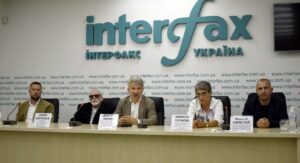
The military aggression of the Russian Federation and active hostilities gave a powerful impetus to the development of the direction of rehabilitation in Ukraine, but the war showed the need to develop approaches to the rehabilitation of military traumas, according to the participants of a roundtable on topical issues of medical and psychological rehabilitation held at Interfax-Ukraine on September 5.
“We started building a rehabilitation system in Ukraine since 2014, but today there are problems that have not yet been resolved. The rehabilitation system depends on many things, including money, because rehabilitation is quite an expensive thing,” Executive Director of the Ukrainian Association for Stroke Prevention (UABI), doctor of physical and rehabilitation medicine Maryna Huliayeva said.
Huliayeva said that in “those clinics that do not have multidisciplinary teams for rehabilitation, rehabilitation is at a low level, the lack of specialists leads to the fact that the process and quality of rehabilitation care is hindered.”
Commenting on the rehabilitation packages, according to which the National Health Service of Ukraine (NHSU) contacts clinics under the Medical Guarantee Program, the expert said that “most of the package is spent on a patient who is already stabilized, but the issue of acute rehabilitation is hung.”
“Unfortunately, it happens that the stroke unit does not have a physical therapist in staff, but there is one in a rehabilitation department. Therefore, there is not enough staff for acute rehabilitation, where major complications are prevented,” she said.
Huliayeva said that, in particular, the military and patients with military traumas should also be examined by a specialist in physical and rehabilitation medicine, but there are no such specialists in military hospitals, so these patients are consulted by civilian doctors.
“I think that such medical care should be developed within the framework of the financing of the Armed Forces of Ukraine. Military doctors are ready to cooperate, we advise military hospitals, we come once or twice a week, we accept them for a rehabilitation package, we work with them,” she said.
At the same time, Huliayeva said that the approach to the rehabilitation of the military should take into account the purpose of rehabilitation, which depends on the severity of traumas.
Huliayeva believes that to develop the rehabilitation of the military, a decision is needed at the state level, “to introduce those positions [in the area of rehabilitation] in military hospitals that were introduced into civilian medicine.”
According to Huliayeva, in addition to introducing rehabilitation into military rehabilitation, it is necessary to develop palliative medicine, as well as rehabilitation at the outpatient level.
In turn, Vadym Kerestey, head of the rehabilitation direction of the ADONIS medical group of companies, also said that the war gave a start to the development of rehabilitation medicine, but if “civilian rehabilitation medicine develops, then rehabilitation in the military in hospitals stands still.”
“Unfortunately, there is a catastrophic lack of specialists. They do not open positions for physical therapists, ergotherapists and other specialists who are part of multidisciplinary teams. There are no such rehabilitation teams in military hospitals that could provide high-quality medical care specifically for the military, who often have severe polytrauma,” he said.
The expert said that “military hospitals are overcrowded with patients with severe traumas, but there are not enough specialists.”
“It is important that the military introduce the position of physical therapists in military hospitals. Perhaps the subcommittee of the Verkhovna Rada, which deals with rehabilitation, could initiate this, so that positions of doctors of physical and rehabilitation medicine could be opened in the military structures,” Kerestey said.
Commenting on the development of rehabilitation in military medicine, Kerestey also noted the importance of rehabilitation goals.
“Rehabilitation terms vary from several weeks to several months, since different patients may have different goals of rehabilitation. For some, this is a return to the ranks of the Armed Forces of Ukraine, for others, at least self-service,” he said.
He also believes that at present in Ukraine “the number of qualified doctors of physical and rehabilitation medicine is very small, they are sorely lacking.” In particular, according to Kerestey, currently in Kyiv “there are about five to six rehabilitation high-quality rehabilitation centers where patients can be treated, starting with intensive care units,” the rest of the centers in Kyiv can only work with already stabilized patients, and things are much worse in the regions.”
“Rehabilitation requires equipment, but it is not the main thing. It is important that the department has specialists: psychologists, ergotherapists, physical therapists, their assistants,” he said.
At the same time, Yehor Prokopovych, head of the Department of Physical and Medical Rehabilitation at Kyiv City Hospital No. 6, said that this clinic has enough specialists of the required profile. At the same time, in connection with the war, the hospital also accepts military personnel for treatment.
“Before March 2022, our hospital accepted [for rehabilitation] only patients with stroke and for rehabilitation under the orthopedic package. Since March, the hospital has been included in the list of hospitals that provide rehabilitation to the military, and we had to reorganize something in our work. For example, we did not know that narcotic analgesics could be prescribed in rehabilitation, that there could be patients with colostomy, with concomitant traumas, that they could have complications that we did not foresee in rehabilitation. We had to learn how to treat in rehabilitation and pneumonia, and cystitis, and urethritis, and much more,” he said.
Prokopovych said that before the war, the department had mainly “patients aged above 50, and now they are young patients who have severe injuries.”
The expert also stressed the absence of “the NHSU package for military rehabilitation.”
“We code them as ordinary neurological patients, and since the beginning of the war we have not received any clarification from the NHSU regarding the military,” he said.
“We see a big push in the field of rehabilitation, but there are practical problems. For example, this is the transfer of a patient from us to another medical facility, building codes or equipment. For example, now we need two devices for the rehabilitation of the military, one of them costs about EUR 10,000, the second is EUR 14,000,” he said.
For his part, commenting on the issues of psychological rehabilitation in wartime, psychiatrist and psychotherapist Yevhen Voronkov said that “not everyone has PTSD, but many people suffer from PTSD and complex PTSD.”
“It is necessary to distinguish between PTSD in combatants and in the civilian population who suffered from the consequences of the occupation, violence, bombing. In many cases, people turn to the general psychiatric service, but this is a level of disorders that no psychiatric services are adapted to in reality,” he said.
At the same time, according to Voronkov, psychiatric education is currently focused on the treatment of severe mental illness, and not the treatment of conditions “that require individual and long-term, but mainly psychotherapeutic management with some medication component and pharmacological support.”
Voronkov believes that there are specialists in Ukraine who can be qualified to work with a person in war conditions in a psychotherapeutic sense, including in the direction of PTSD, “but they are not trained in public structures, they are trained as part of international projects, most of them work individually or in small teams.
“Some of our psychotherapists work with those who have returned from captivity, have received severe injuries. But these are only a few of the therapists who are involved in the work. There is a problem in training military psychologists or psychologists,” he said.
The expert said that the psychological rehabilitation of patients in wartime requires a conceptual development, since “this is a new situation in such a mass plan, it is only six months old.”
“Neither the structure nor the characteristics of these patients is clear. There is only a general understanding of what to do with it. And it is clear that patients need to be distinguished: one thing is those who were in the occupation, the other is the military, the third is children, internally displaced persons, and so on. It will be a large complex, for which, I believe, the psychiatric service is not ready,” he said.
In addition, Voronkov said that “there are no systematic studies of the military on PTSD.”
“Such studies require a pool of patients, besides, PTSD does not occur immediately, it is a delayed syndrome. A burst of PTSD can manifest itself in its most real forms several months after traumatic situations. Sometimes it is weeks, but more often after months we can see the formation of specific PTSD. It is difficult to work with such patients, this is a very difficult contingent not only for rehabilitation, but also for treatment in an acute condition,” he said.
At the same time, Voronkov said that the developments that were made by foreign specialists in the course of local military conflicts of past years may now be ineffective in Ukraine, since “it is necessary to take into account huge transcultural differences, in psychology the transcultural aspect is very important.”
“Severe PTSD is a very serious disease. Doctors are not adapted to work in such conditions, it is impossible to train such specialists in advance,” he said.
In turn, the head of the Department of Nephrology and Renal Replacement Therapy of the National University of Health Protection, Professor Dmytro Ivanov said that the Ukrainian Association of Nephrologists, based on international experience, prepared recommendations for rehabilitation in the specialty of nephrology.
“They relied on world experience, because there are military conflicts, and there is an array of information to form recommendations,” he said.
At the same time, according to Ivanov, about 600 out of nearly 10,000 Ukrainians, who were on dialysis at the beginning of the war, left for the EU countries.
CONFERENCE, Huliayeva, KERESTEY, MEDICINE, nhsu, Prokopovych, REHABILITATION, АДОНИС, Воронков, ИВАНОВ, уаби
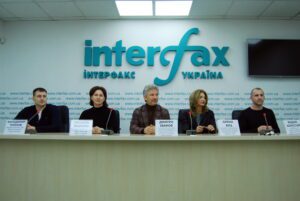
Some 5-7% of people who came through COVID-19 could have a post-COVID syndrome, this opinion was expressed by the head of the department of nephrology at the Shupyk National Healthcare University of Ukraine, Dmytro Ivanov, at a press conference at the Interfax-Ukraine agency.
“When we analyzed the mortality of people from COVID-19 and compared what concomitant diseases they had, it turned out that there were mainly five diseases. Three of them are kidney diseases. People with kidney transplants die first, and those with kidney failure second,” Ivanov said.

In turn, the head of the direction of rehabilitation of the network of Adonis medical clinics, Vadym Kerestey, noted that the main consequences of COVID-19 are expressed in the form of shortness of breath, decreased physical activity, decreased exercise tolerance, dizziness, loss of coordination and apathy.
“All these consequences require the help of a physical therapist,” Kerestey said.
Natalya Yaschenko, the Associate Professor of the Department of Cardiac Surgery at the National Healthcare University of Ukraine, the cardiologist of the highest category, emphasized the need for a mandatory medical examination after suffering COVID-19.
“If the COVID was symptom-free, then all patients should at least in two to four weeks undergo the blood counts, check the function of the kidneys, the liver, possibly the coagulation system. In addition, you should definitely do an electrocardiogram,” Yaschenko said.
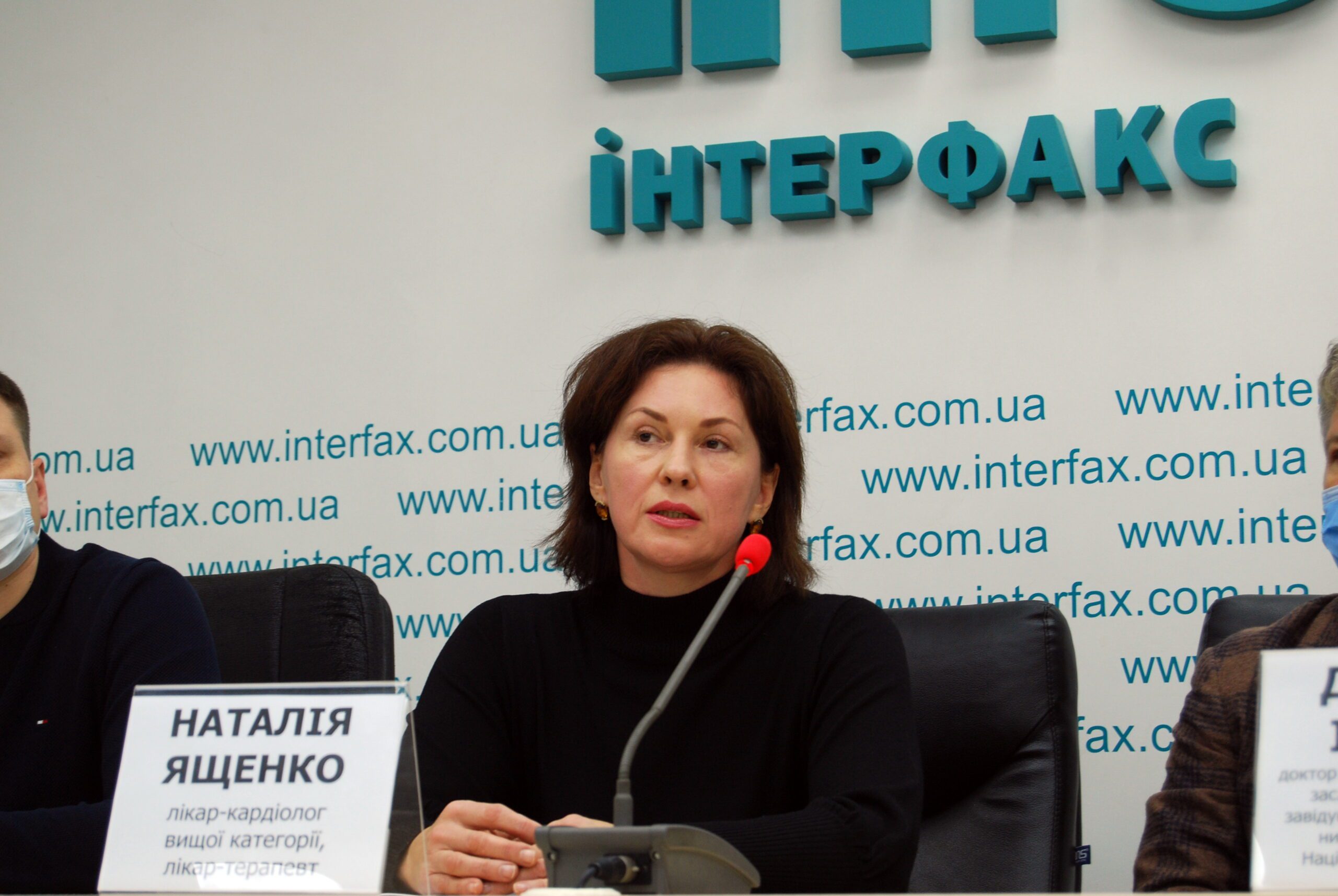
In turn, obstetrician-gynecologist of the highest category Volodymyr Terekhov noted the need for vaccination against COVID-19.
“It is better to be vaccinated prematurely and be prepared for the virus to enter the body. Therefore, before pregnancy, you should definitely be vaccinated. You need to be vaccinated as early as possible,” Terekhov said.
At the same time, according to the psychologist, psychoanalyst Olena Buts, if a person has any fears after the illness, then he needs the help of a psychologist and psychoanalyst, since the person comes into a state of nervousness, phobia, fear. At the same time, she added that the presence of some kind of mental illness significantly worsens his condition.
BUTS, COVID-19, KERESTEY, SHUPYK, TEREKHOV, YASCHENKO, ИВАНОВ
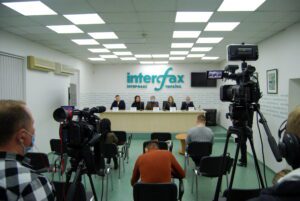
Experts from various fields of medicine made recommendations to patients with COVID-19 during a press conference at the Interfax-Ukraine agency on Monday.
“First, try to be outdoors as much as possible, but on condition that the air temperature is not lower than -4 or -5 degrees. Second, try to do physical exercises, but mostly of an aerobic nature,” the head of the rehabilitation department of the Adonis network of medical clinics, Vadym Kerestey, recommends.

In addition, he commented on the currently popular recommendation for patients after COVID-19 to “inflate balloons.”
“It is categorically not recommended to inflate balloons. Training should be aimed not at exhalation, but at inhalation, in order to increase the vital capacity of the lungs and use as much lung tissue as possible to improve gas exchange,” Kerestey said.
In turn, the head of the department of nephrology of the Shupyk National Healthcare University of Ukraine, Dmytro Ivanov, recommended that patients after COVID-19 do basic diagnostic tests.
“Do a blood test, urine test, measure blood pressure after COVID-19. Assess whether you need a doctor at all in this situation, whether you feel comfortable, whether you need any help,” he said.
Natalya Yaschenko, the Associate Professor of the Department of Cardiac Surgery of the National Healthcare University of Ukraine, a cardiologist of the highest category, recommended physical, metered loads, control of blood pressure and eating behavior to those who had undergone COVID-19. At the same time, she emphasized that the reason for timely medical assistance can be an acute deterioration in the form of an increase or decrease in blood pressure, an increase or decrease in heart rate, progressive chest pain that does not decrease for several hours.

The obstetrician-gynecologist of the highest category, Volodymyr Terekhov, in turn, drew attention to the fact that “one of the signs of recovery for married couples is the desire to have a child.”
“If a married couple wants to fulfill their duty and give birth to a child, then this is an indicator that speaks of their recovery. To realize a basic function or reproduce – it is very important to do this after rehabilitation,” Terekhov said.
At the same time, the psychologist, psychoanalyst Olena Buts recommends dietology to patients: minerals, vitamins, coenzymes – what, according to her, increases immunity and brings happiness.
BUTS, COVID, COVID-19, INFLATE BALLOONS, KERESTEY, TEREKHOV, YASCHENKO, ИВАНОВ
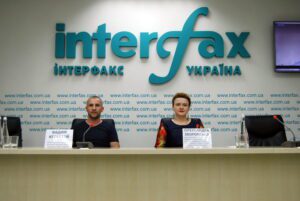
Post-COVID rehabilitation is necessary for patients even at the time of stay in a medical facility, and 20-40% of patients who have recovered will suffer from post-COVID syndrome, a number of experts voiced this opinion during a press conference at Interfax-Ukraine. “Out of 100% of people who are sick with COVID-19, some 20% need hospitalization. Some of these patients need hospitalization in intensive care units, as well as mechanical ventilation. Rehabilitation for such patients is necessary even in the intensive care unit, especially for patients with artificial lung ventilation. Rehabilitation is also important for patients who move from the intensive care unit to the hospital,” Vadym Kerestey, the head of the rehabilitation department of the Adonis network of medical clinics, said.
At the same time, the expert emphasized that currently in Ukraine, very few rehabilitation measures are carried out in intensive care units, and rehabilitation centers do not cover all needs.
He noted that the majority of patients who had been ill in a mild form also need post-COVID rehabilitation, since patients have impairments from different systems. Patients often have tachycardia, lung problems, reduced ability to work, acute disorders of cerebral circulation, thrombosis, which increases the risk of strokes, disorders of the nervous system.

In addition, the country also has a demand for post-COVID rehabilitation among foreigners, the expert emphasized.
Physical therapy is especially important, he said.
“Physical therapy will accelerate the recovery of patients. Physical therapists teach patients to move, breathe correctly, determine the physical condition and the body’s ability to exercise,” Kerestey said.
The head of the department of inflammatory eye pathologies and microsurgical treatment of their consequences of the Filatov Institute of Eye Diseases and Tissue Therapy of the National Academy of Medical Sciences of Ukraine, Oleksandra Zborovska, in turn, noted that patients after coronavirus also need to undergo rehabilitation with ophthalmologists.

“From the point of view of an ophthalmologist, everyone needs rehabilitation, even those who were not sick, since we were all on isolation, which significantly increased the time of contact with gadgets. There is evidence that an increase in myopia in children is recorded. Therefore, visual hygiene and a dosage visual load regimen are of great importance. Regarding post-COVID rehabilitation, patients come with different complaints and need to be observed by a doctor,” she said.
At the same time, Vitaliy Usenko, the medical adviser to Farmak, noted that, according to the latest data, 20-40% of patients who have recovered will suffer from post-COVID syndrome.
“Post-COVID syndrome has been included in the international classifier of diseases. The Ministry of Health of Ukraine has signed an order with a protocol for rehabilitation care for patients with coronavirus disease. It is impossible to implement the protocol with the help of one health system, and it is very good that rehabilitation services appear,” he added.
According to Usenko, during post-COVID rehabilitation, drugs that are used in the treatment of COVID-19 can be used, but only as directed by a doctor.
FARMAK, FILATOV INSTITUTE, KERESTEY, REHABILITATION, USENKO, ZBOROVSKA, АДОНИС